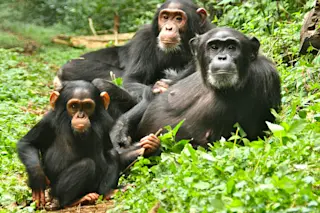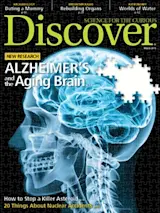We often hear about diseases that jump from animals to humans. But as human contact with wildlife becomes more frequent and people continue to encroach on habitat, wild animals are being exposed to human pathogens more than ever. For the great ape, whose populations are already endangered, diseases such as measles can have a devastating effect.
To help wildlife officials with vaccine efforts and management of epidemics, ecologist Julie Rushmore of the University of Georgia studies social behavior among great apes in Uganda. By applying social network analysis — the mathematical theory behind Facebook that explains how different individuals are connected — Rushmore found that high-ranking mothers and their juveniles (as well as high-ranking males) were most likely to transmit diseases to other chimps because everyone in the community wants to be with them.
Knowing which chimp is most at risk makes ape vaccination campaigns more successful because it minimizes ...















